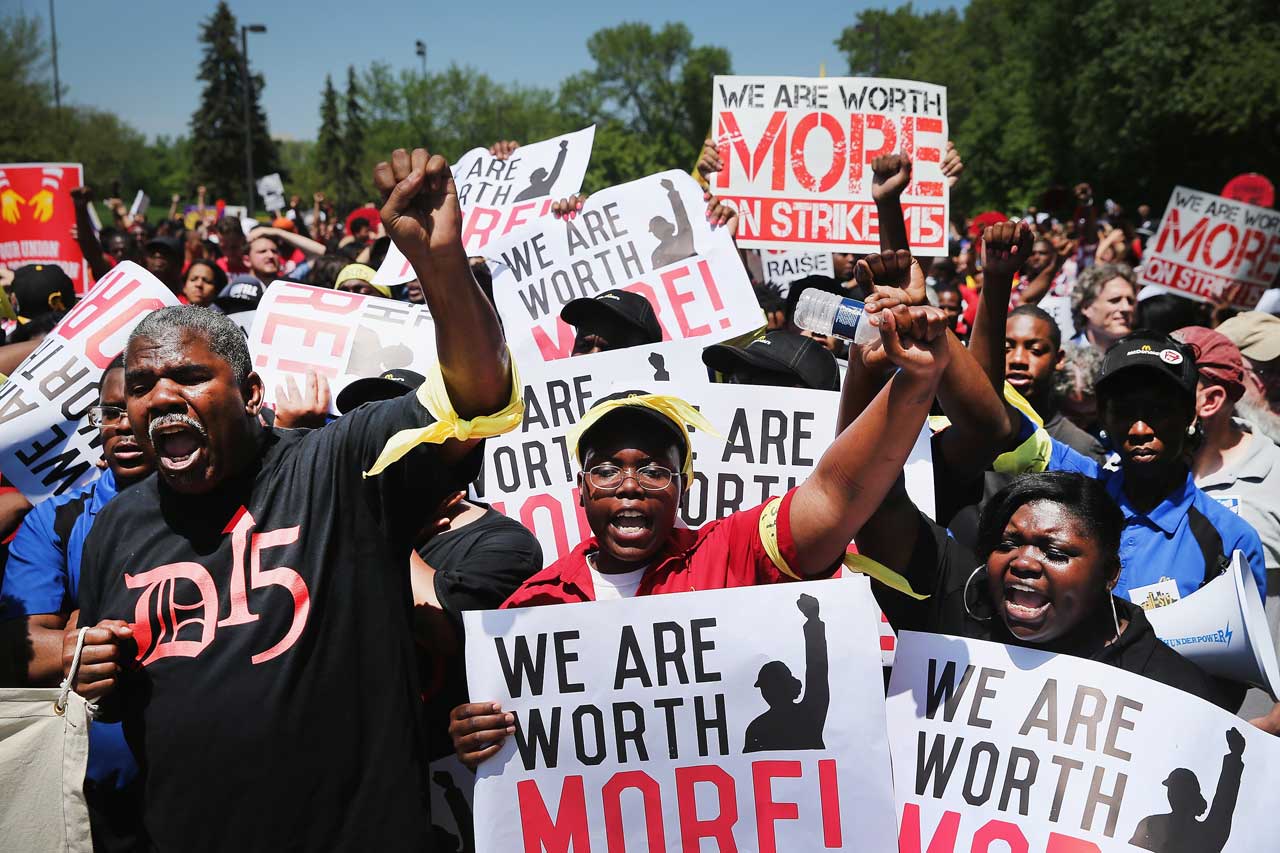ATLANTA — On a recent Friday, Kwanza Brooks, a $7.25-an-hour McDonald’s worker, climbed into a 14-person van to take a four-hour ride from Charlotte, N.C., to Atlanta.
As she and other workers headed south, Ms. Brooks, a short, fiery woman, swapped stories with her companions about unsafe conditions and unfair managers. Upon arriving, they joined more than 400 other people — including home care aides, Walmart workers, child care workers and adjunct professors — at the Ebenezer Baptist Church, where the Rev. Dr. Martin Luther King Jr. had been a pastor.
The gathering on March 21 was in part a strategy session to plan for the fast-food movement’s next big wave of protests, which is now scheduled for April 15. But the meeting was also seeking to be something far more ambitious. Through some strategic alchemy, the organizers hoped the gathering would turn the fast-food workers’ fight for a $15 hourly wage into a broad national movement of all low-wage workers that combined the spirit of Depression-era labor organizing with the uplifting power of Dr. King’s civil rights campaign


